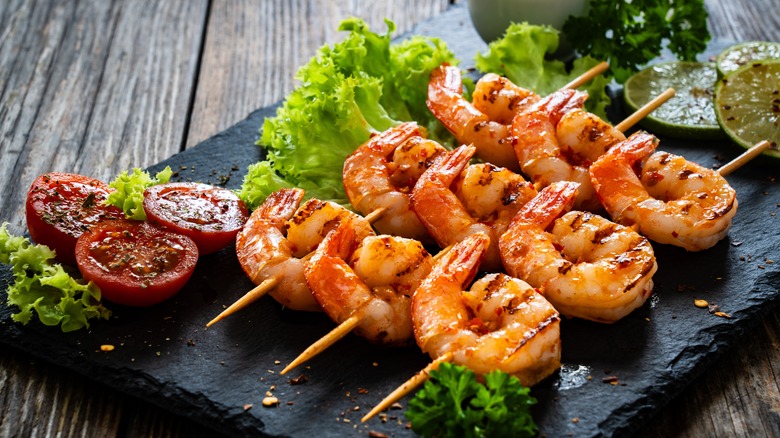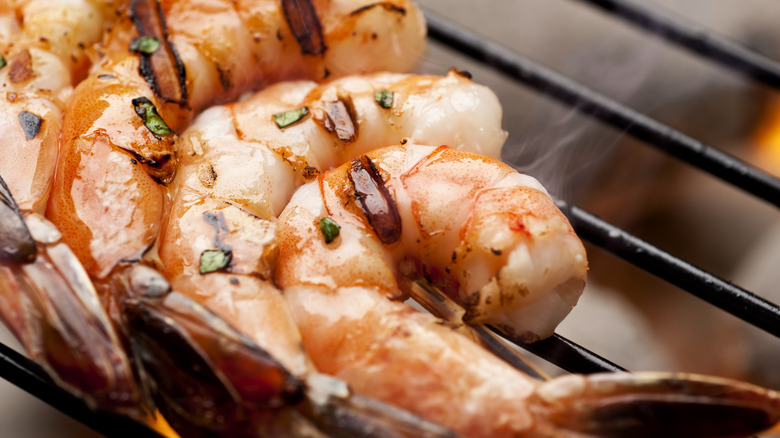Avoid Rubbery Grilled Shrimp With A Clever Cooking Technique
Shrimp have a reputation for being an easy protein option for any meal, but anyone who loves them knows that they are also one of the easiest things to cook poorly. The gulf between a well-cooked shrimp and an overcooked one is massive, with the sweet, snappy seafood transforming into a rubbery mess in what seems like an instant. A combination of small size, soft texture, and high surface area means shrimp cook through extremely rapidly, especially with high heat cooking techniques like searing or grilling.
Giving shrimp enough time to brown and develop flavor without getting overcooked on the inside is a tough needle to thread, but there are some easy precautions you can take to nail it. For one you can start with a really hot grill for shrimp, and you can also buy yourself some extra time by properly arranging your shrimp on a skewer.
The key to the trick is to nest your shrimp close together as you skewer them. Because a high surface area is part of what makes shrimp cook so easily, pushing yours up against each other helps minimize the area of the crustacean that is directly exposed to heat. Your shrimp will still cook quickly, so don't get complacent, but any leeway you can give yourself is going to be extremely helpful. With larger jumbo shrimp, this stacking technique should give you four to five minutes until your shrimp are cooked through, which leaves a nice window to keep them juicy.
More shrimp grilling tips
If you still want some extra insurance against overcooked shrimp (especially if you are using smaller shrimp sizes labeled 26-30 and up), there are a few more tricks you can use along with nesting to keep the grill's heat at bay. One highly effective thing is to leave the shell on. You can still cut open the back to clean them and make peeling easier, and the shrimp meat will still cook while the shell provides an extra layer of protection. The downside to this is that it's a bit messier to eat, and the shrimp itself won't brown as well — but for smaller shrimp, it can be very helpful.
A few ingredients can also help keep your shrimp from getting rubbery and can be easily combined with nesting. Baking soda can help raise the pH level of shrimp, which stops proteins from binding and stops them from squeezing out moisture. Just ¼ teaspoon baking soda for each pound of shrimp will help keep them crisp and juicy. Brushing your nested shrimp with oil and seasoning your shrimp with a little sugar can both speed up the browning process, meaning less time on the grill to get your shrimp perfectly cooked, and less chance of ruining them. After that, it's just a matter of learning how to spot when your shrimp is cooked, and then enjoying the perfectly flame-kissed spoils of all your new shrimp knowledge.

